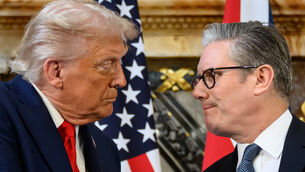We can’t let fear get in the way of backing same-sex marriage

I was there, as I saw it, to support Frances Fitzgerald, the Minister for Children.
It was on TV3, chaired by Vincent Browne, and was recorded an hour or so before transmission. The debate was an ugly and heated affair, characterised by a lot of shouting and interruption. I remember thinking afterwards that, with the exception of Frances Fitzgerald, who maintained dignity and focus on the main issues throughout, none of us had really covered ourselves in glory. Someone tweeted in the course of the debate that (to say the least!) it wasn’t particularly helpful in making the issues totally clear.















